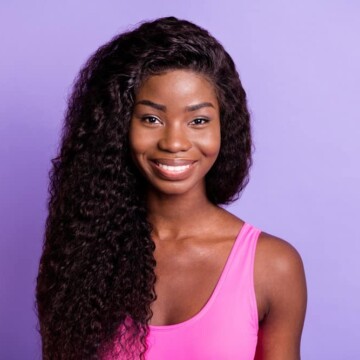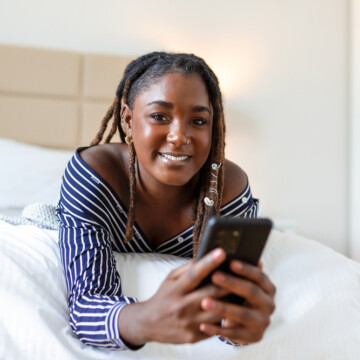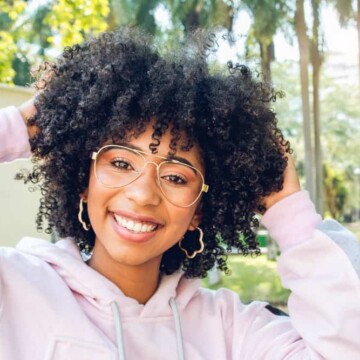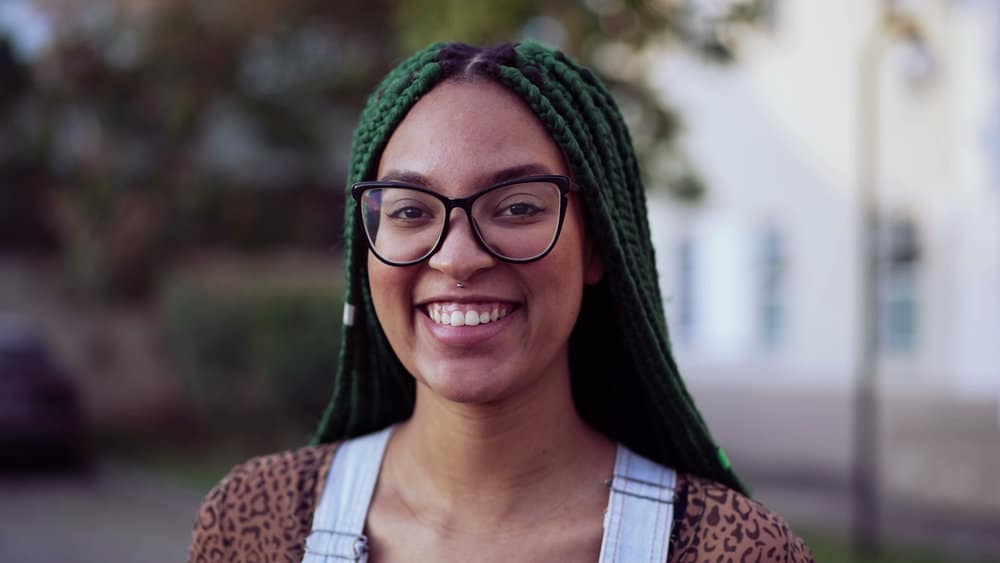
Braids are distinctive, long-lasting, and rich in culture. It's no wonder why people all over have added them to their hairstyle rotation. But there's one thing about braids that leaves people scratching their heads (literally), and it's the fact that they itch.
If your itchy scalp makes wearing braids more of a chore than a pleasure, we can help! In this article, we'll tell you why your braids itch and fill you in on what you can do about it.
Why Do Braids Itch?
Braids can cause itchiness and irritation due to the synthetic hair used in the braiding process. Synthetic hair is often coated with an alkaline base to preserve it and prevent it from molding while in storage. This chemical solution can trigger an allergic reaction in some people.
When the braids are installed, the chemical coating on the synthetic hair can react with the scalp, causing itching and tenderness. Therefore, if you experience itching after braiding your hair, it is likely that you are allergic to the synthetic hair or the chemicals used to treat it. We'll cover a few additional reasons in the below list:
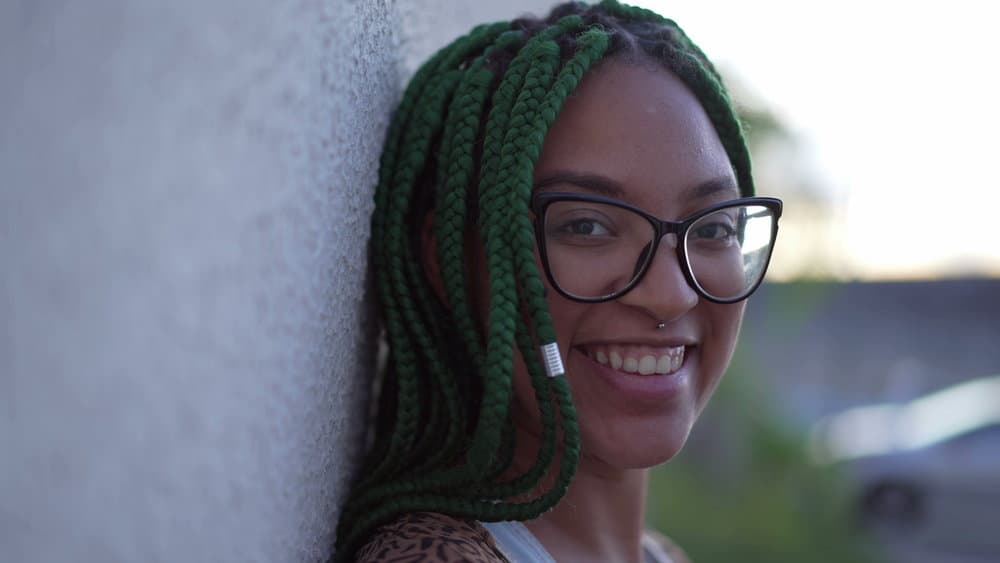
The Braiding Hair
Braiding hair, which is made of synthetic material, goes through a lot of processing before it gets into your hands. The part of the process thought to contribute to itching is mold and mildew prevention.
To keep the hair mold and mildew-free, manufacturers often treat the hair with chemicals, such as alkaline lye.
This ingredient, as well as others used during manufacturing, can result in some serious itchiness once the hair comes in contact with your scalp. Sometimes, the dyes used to give the synthetic hair its hue can have the same effect on your scalp.
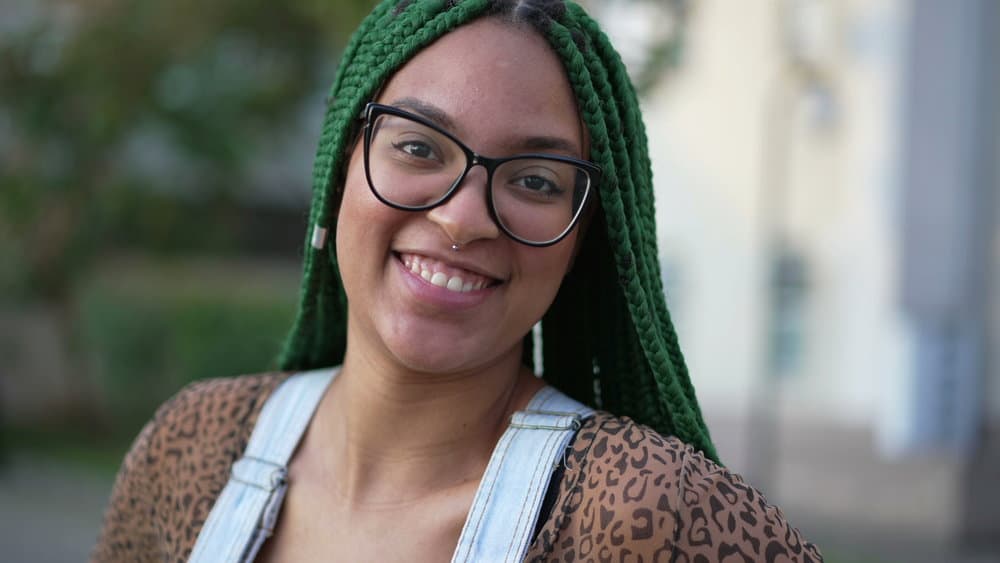
Your Braids are Heavy
Long braids are in, and everyone is asking for them, but bottom-grazing braids can do a real number on your scalp. The longer your braids are, the heavier your braids may be.
That weight can pull at your roots and irritate your scalp.
If this is the issue, you could experience itching alone or itching along with redness and bumps. Though heavy braids aren't usually cited as an extreme problem, people have had irritation so bad that they've lost hair.
Your Braids are Too Tight
Due to the general obsession with neatness and sleekness in the natural hair community, people go to great lengths to get their braids ultra-sleek at the roots.
Unfortunately, getting your braids done too tight can lead to an angry, irritated scalp that itches incessantly. Aside from the itching, you'll likely develop bumps, redness, and pain.
Some people have had their hair braided so tightly that it bleeds. In the worst cases, the hair could be ripped out at the roots. Itchiness would be the least of your worries, then!
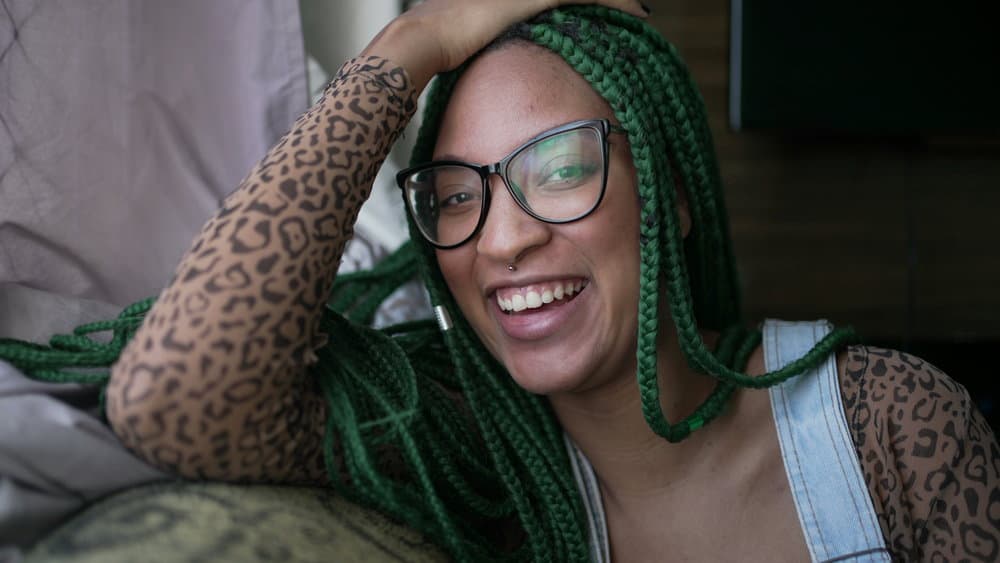
The Texture of the Braiding Hair
Braiding hair isn't known to be the softest hair out there. It's manufactured to be coarse most of the time to make it easier to braid in with natural hair.
If you've got some stray hairs sticking out of your braids at the roots, you may be able to chalk that itching up to the texture of the braiding hair. Even braiding hair, advertised to be soft, may cause your scalp to itch.
Your Scalp is Dry
Sometimes itchy braids could have nothing to do with the hair itself. It could simply be that your scalp is dry, and when that occurs, it may itch.
DIY braiders and even professionals may forget to moisturize the scalp before, during, or after the braiding process. If you can't remember the last time your scalp was oiled or otherwise moisturized, this could be the culprit behind your itchy scalp.
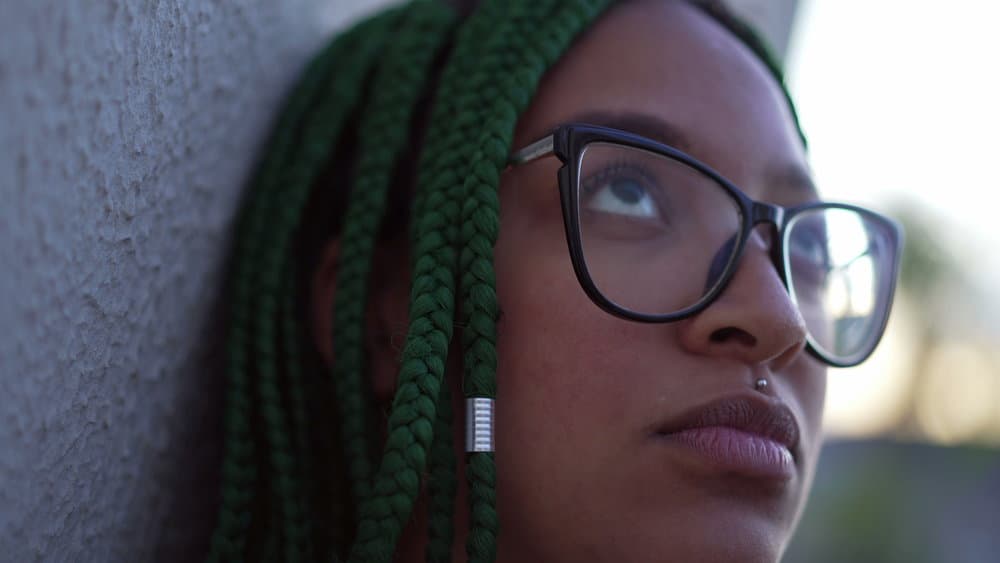
Excess Product or Product Residue
Braided styles, especially those done professionally, are rarely executed without the use of gels, sprays, oils, waxes, etc. Any of the products used on your hair or scalp could end up causing irritation or discomfort.
Then there's the issue of how much product was used. When too much product is used during a braid installation, the excess product may dry up and flake–hence, the itch.
Product buildup can have the same effect.
Regular braid wearers may take down a braided style and get another one installed on the same day. If the hair isn't washed well between installs, whatever residue that was sitting on the hair will remain. Your scalp doesn't like that and will protest with itching.
Braiding Dirty Hair
There's a reason why stylists always wash your hair before braiding it. If there are dead skin cells, flakes, and excess sebum on your scalp, you may feel the itch soon after your style is complete.
In addition, it's important to keep your scalp relatively clean for the health of your scalp and, consequently, healthy hair growth.
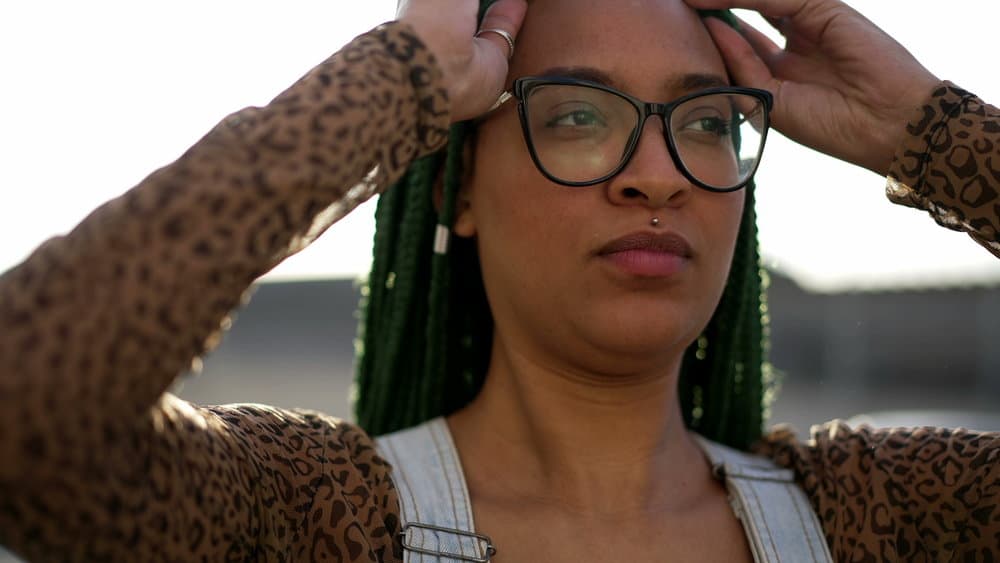
You Have Dandruff
Dandruff is a scalp condition that results in the formation of scalp flakes, itchiness, and scalp irritation. The condition is thought to be caused by the Malassezia fungus, dry scalp, inadequate shampooing, or sebum or oil buildup. Dandruff is often a long-lived condition you must work to find a remedy for.
How to Fix Itchy Braids
How you tackle your itchy braid problem will depend on what's causing your scalp trouble, but here are a few things that everyone can try:
Moisturize Your Scalp
To moisturize your scalp while it's in braids, grab your favorite leave-in conditioner spray and massage it into your scalp.
Use the pads of your fingers and move them in circular motions. Try your best to avoid scratching your scalp. If lack of moisture is your problem, this should stop the itching within seconds.
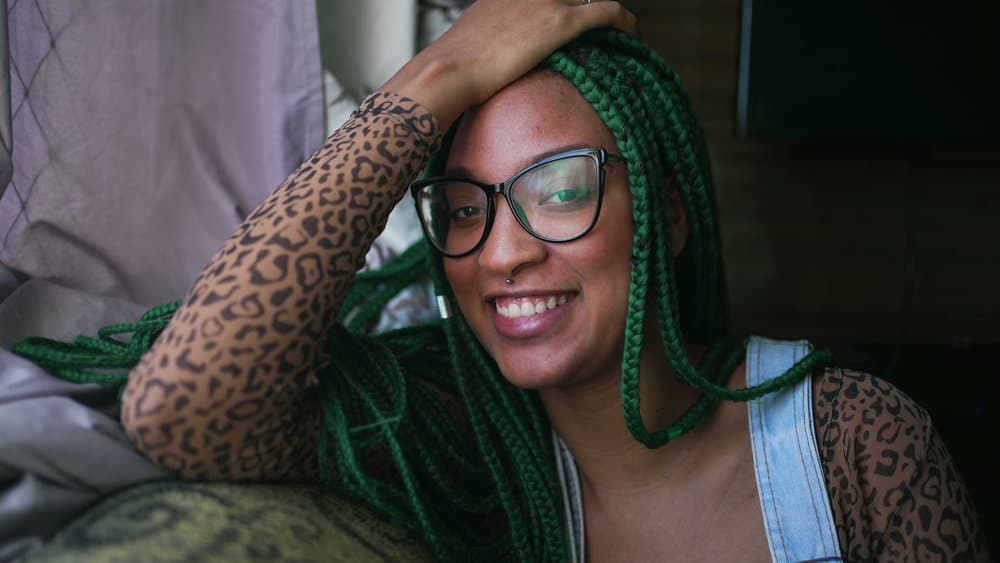
Treat Your Dandruff
If you suspect you may have dandruff, you can start with a dandruff shampoo treatment. You can find dandruff shampoo at your local department store, beauty supply store, or online.
The shampoo will be medicated, meaning it'll contain one or more active ingredients. Head and Shoulders Clinical Strength Shampoo not only works to improve dandruff, but it also controls oil!
Dandruff shampoos can be incredibly drying to the hair, so follow your shampoo session up with a deep conditioner and a leave-in conditioner. Don’t apply either of them to your scalp.
Don't Wear Your Braided Style for Too Long
Braided hairstyles are loved for their longevity, but you shouldn't leave them in longer than 2 months. Leaving them on for longer than that can lead to itching and a plethora of other scalp-related problems, including hair thinning, breakage, and build-up.
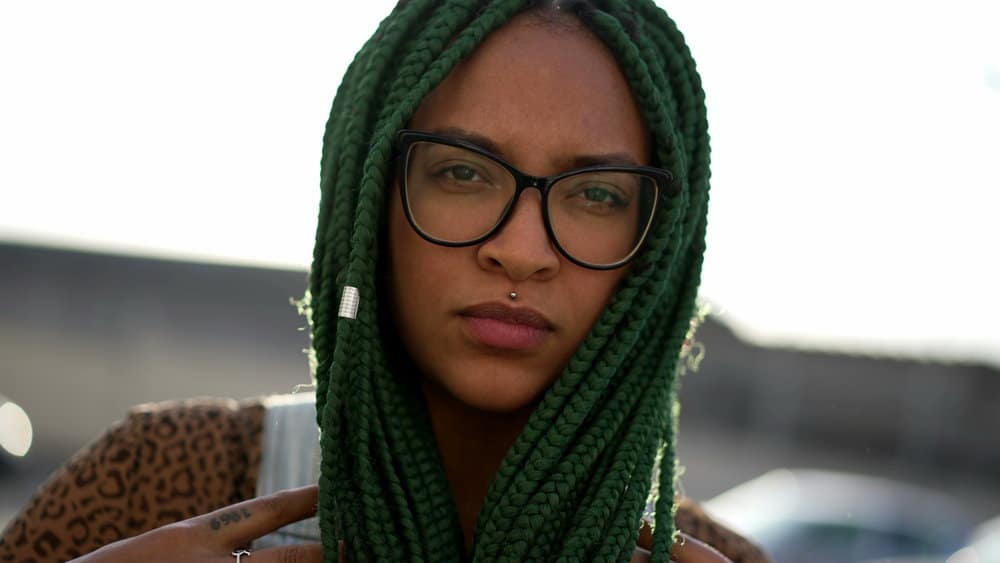
Remove the Braids
Sometimes, the itching is so bad that your only option is to get rid of the braids altogether. We get that you spent time, money, or both to achieve your style, but an incessantly itchy scalp is no fun.
And constantly scratching your scalp can introduce bacteria and jumpstart an infection. So, if the previous remedies we mentioned don't alleviate the itching, removing the braids is necessary.
Preventing Scalp Itch with Braids
Most people don't think about the risk of an itchy scalp prior to putting their braids in, but it pays to take steps to prevent the itchiness in the first place.
To prevent scalp itchiness with braids, you should take some time to soak your braiding hair before braiding it into your own. It'll help lift away many of the impurities responsible for an itchy scalp.
To do so, add a cup of apple cider vinegar to half a sink full of warm water.
Then, place your braiding hair into the solution and wait up to half an hour. Rinse the extension hair off for several minutes to rinse away the bad stuff. Then, sit the braiding hair out in the open air to let it dry.
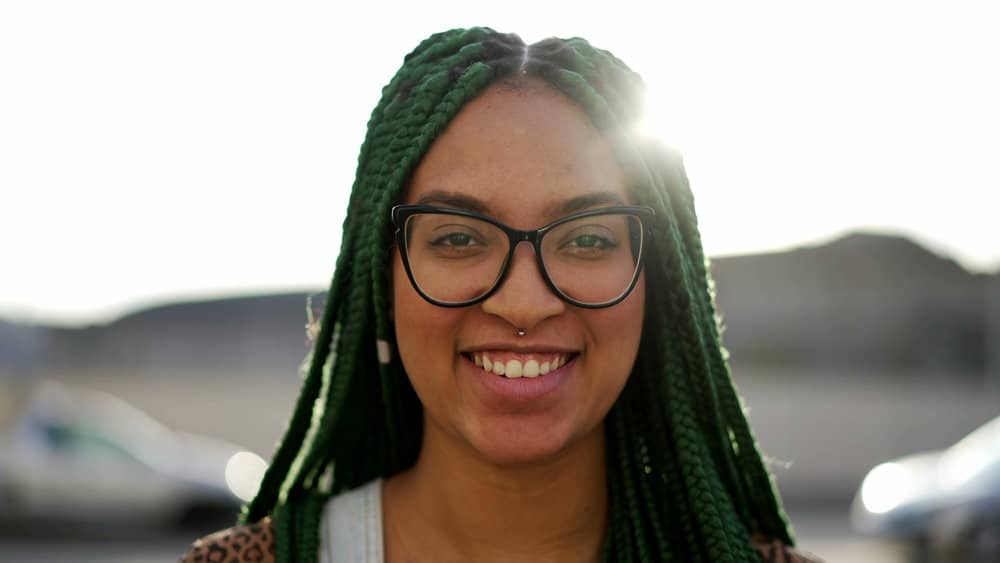
Use Human Hair Extensions
If you experience itching every time you wear braids and believe it may be the hair you're using, switch out the braiding hair for human hair extensions.
Since human hair doesn't undergo much of the chemical processing that braiding hair goes through, making the switch could do the trick. Human
So, there you have it–everything you need to know about why your braids itch. We hope the tips included in this article help you prevent or stop the itch. Good luck!

